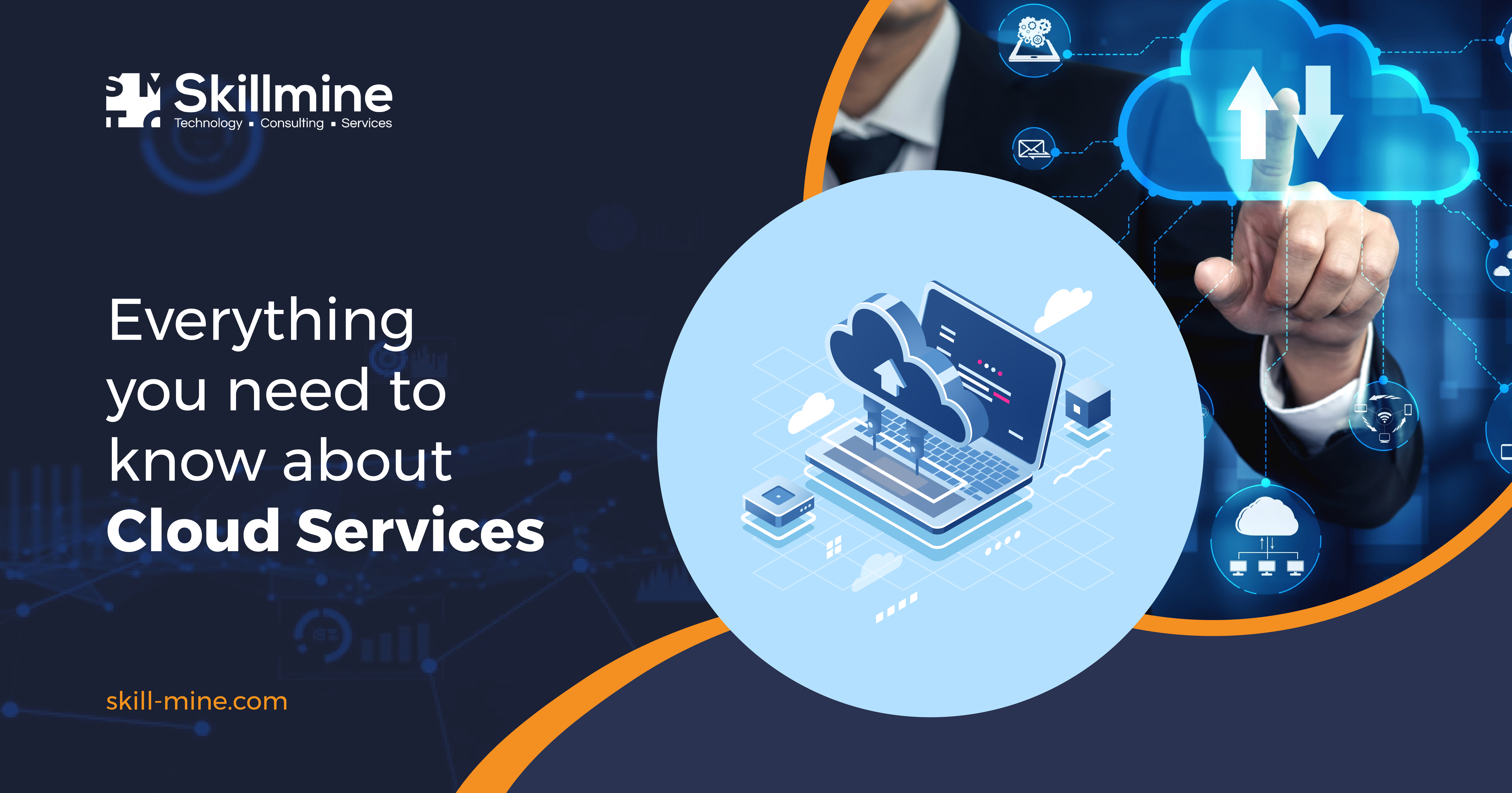A global home appliance manufacturing business with a broad base of customers in India and the Arab nations sought to improve its website performance, engineering efficiency, and UX. They also wanted to ensure long-term scalability and sustainability.
After a detailed vendor selection process, the business identified Skillmine as the right choice for its cloud migration strategy (Read 7 Steps of cloud migration). Skillmine helped the business to be deployed in a hybrid environment, providing redundancy, reducing risk, and allowing them to perform A/B testing. The migration enhanced data security and mobility by 40%.
Let’s understand more about cloud services.
What are cloud services?
Infrastructure, platforms, or software hosted by external providers and made accessible to users online are referred to as cloud services.
Cloud services make it easier for user data to move back and forth from front-end clients (such as users’ servers, tablets, desktop computers, and laptops) to the provider’s systems through the internet. Cloud services encourage the development of cloud-native apps and the adaptability of cloud-based activities.
Examples of cloud services
IaaS (Infrastructure as a Service): Offers users computing, networking, and storage resources.
Platforms-as-a-Service (PaaS): Gives users access to a platform for running applications and the necessary IT infrastructure.
Software-as-a-Service (SaaS): Gives users access to a cloud application, its platform, and the infrastructure supporting it.
Function-as-a-Service (FaaS): Enables developers to create, manage, and run programme packages as functions without worrying about infrastructure upkeep.
Why are Cloud Services Proliferated?
- Offers a great level of privacy and security.
- Supports a pay-as-you-go strategy, which is incredibly affordable for businesses.
- Very adaptable to changing requirements and have a high degree of scalability.
- Provides a great deal of flexibility, enabling businesses to choose the services that best suit their need.
- Provides various additional benefits, including the capacity to share data with others and access data from any location.
Challenges of Cloud Computing Services
- Insecure APIs – A cloud environment contains many potential sites of attack. One potential threat stems from insecure APIs. Since unprotected APIs allow for unauthorised access to data, it is imperative to ensure that the API layer is equally secure.
- Configuration errors: The default cloud environment settings lead to privacy and data breaches. Misconfigurations could include failure to change the privacy settings or default passwords.
- IT expertise: Implementing cloud-based security solutions may be delayed by a lack of knowledge and expertise with cloud environments. Personnel with expertise in the cloud are required to get over this barrier.
Threats to The Future of Cloud Computing
- Data leaks are one of the biggest dangers to the future of cloud computing. Even though the cloud is widely thought to be secure, several high-profile data breaches have recently occurred.
- Another danger to the future of cloud computing is the potential for new technologies to supersede clouds. Any new technology has this risk, but something as disruptive as clouds raises the stakes. Although it doesn’t seem likely that anything will replace clouds anytime soon, it’s always possible that a stunning piece of technology may emerge and render clouds obsolete.
Conclusion
Cloud is an advancement in technology that has created ripples in the business sector. Skillmine’s cloud services provide a flexible and scalable solution for businesses to scale as per need. Our cloud solutions enable you to process, manage, and maintain data and apps remotely, eliminating the need for expensive hardware and maintenance.
Looking for expert technology consulting services? Contact us today.





